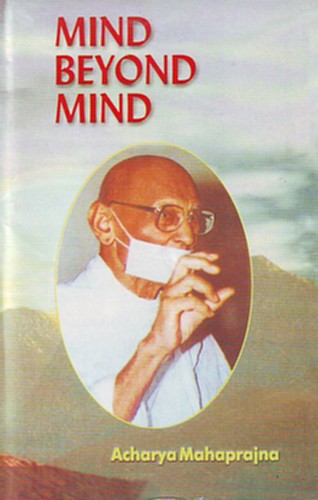
There are two kinds of men: those who feel that the external world is full of diversity and those who feel that there is unity in the world within. If we pay exclusive attention to the external world we feel that it is full of diversity. This feeling produces worries. We live in two environments, the external, and the internal. The external world is a world of diversity and we feel worried because we connect ourselves with it. If we cut ourselves off from it and enter into the world within, we will feel a sense of unity. It is only when we mix the two that we feel diversity in the internal world also. The world of the self is a world of unity. This unity can be experienced only when we renounce all kinds of relations with men and things. Just as we confuse the external world with the internal world, in the same way we confuse the past with the present. This confusion creates in us the sense of lost glory in our old age. The glory that has been lost makes us feel neglected and miserable. It is due to Pramada or self-forgetfulness that we remain involved in the world of relations. The self-neglectful man confuses the past with the present. Disinterestedness diverts our minds to the self and once we have become self orientated, we will become free from all kinds of attachments, and this will make a great difference in our attitude towards others as well as ourselves. To associate ourselves with others is to forget ourselves and to adopt an attitude of Pramada. The correct attitude, however, is that we have nothing to do with anybody or anything else except our own self. Complete isolation of the self from the world of relations is the way to self-knowledge. Once the self has been isolated, there is nothing else to know and all the hopes and fears based on our relationships with the external world come to an end. In such a state we will not expect anything from and have no cause of complaint against any body. An admission of the autonomy of the self relieves us of all kinds of worries and anxieties.
There had been a monk named Maganlal Swami in the Tera Pantha sect. Day and night he would remain self-absorbed. He never expected nor desired anybody to do anything for him. He would take food and water only if some associate brought them for him. If his associates forgot to bring the same, he would remain hungry and thirsty but he would never demand anything and would not complain that he had been neglected or forgotten by his associates. He believed that to receive attention from others was a privilege and no body was bound to help others. He remained happy and contented in his solitariness. Those alone who do not value solitariness complain against and find fault with others. We become critical of others only when we have forgotten our self.
The basis of Apramada is to be conscious and attached to the self-only. The term Atma Smrti (remembering the self) is a misnomer. The self is our very being and there is no question of remembering it. It is impossible to forget the self. Pramada or self-forgetfulness is born only when we superimpose our self on external things and men other than ourselves. It is this superimposition, which we have to break before we can come to know our real self. Self-negligence is the product of our ignorance. It is born of a false consciousness produced by an error of judgment and of attachments and aversions. It is produced by bodily, mental and speech indiscipline. Even sleep serves as a cause of infatuation. There is not much difference between sleep and a state of intoxication. In both we remain forgetful of the self. Conquest of sleep is, therefore, the first step in Sadhana-. Indifference to sensory pleasures is also a prerequisite of Sadhana. Discipline of the sense organs leads to self-consciousness. Then there can be no Sadhana without conquering infatuation. Bhagawana Mahavira said, ‘Fear lurks in the mind of the infatuated at every moment.’ An infatuated person cannot take anybody into confidence. He is suspicious and distrusts everybody. This fear gives additional strength to infatuation. The infatuated man is always overcautious. As a matter of fact over cautiousness is itself the outcome of fear. Fear and distrust disturb us even in our sleep and create funny reservations even against our own kith and kin. Over attachment to outer things make the entry of fear and suspicion in our minds easy. The result is that we become secretive.
The feeling of solitariness makes us immune to infatuation and fear, for fear comes only from those whom we think to be other than ourselves. If we adopt the ideal of solitariness, there will be no problem left for us to solve. This philosophy is beneficial in our personal as well as social life. It makes us free to proceed forward on the road to self-realization.
Men are governed by two tendencies. They have to lead a social life in order to live. Social life implies entering into relationships with things and men other than ourselves. This is the position of practical life. The other tendency is to run away from social relations and the responsibilities they involve. This tendency implies that the life of truth, solitariness, and spirituality is the only real life. A life of solitariness is the precondition of entering into the spiritual world. In spiritual life we need no companion except our own self. We need not condemn any of these two tendencies. Both are valuable in their fields. The life of the practitioner of truth is governed by the second tendency.
Acarya Bhikshu said to his ascetics, ‘Learn to live a solitary life even though you are members of the Order.’ This statement appears to be a paradox. How can one lead a social as well as solitary life together? The fact is that the ascetic can and must lead a dual life. Active membership of an Order is not antithetical to a solitary life. The ascetic may serve and be served by co-ascetics. He may enter into a life of give and take, for he has to preach and render spiritual service to the society. It is the society, which maintains him during the period of his Sadhana. But in no case should he enter into alliances and form groups. He should lead a collective life for service and a solitary life for Sadhana. If we want to experience reality and avoid complications produced by our relationships with men other than ourselves, the best way is to lead a life of isolation. We will have to fight single handed as an individual for the self is autonomous. Acharya Mahaprajna
Acharya Mahaprajna

